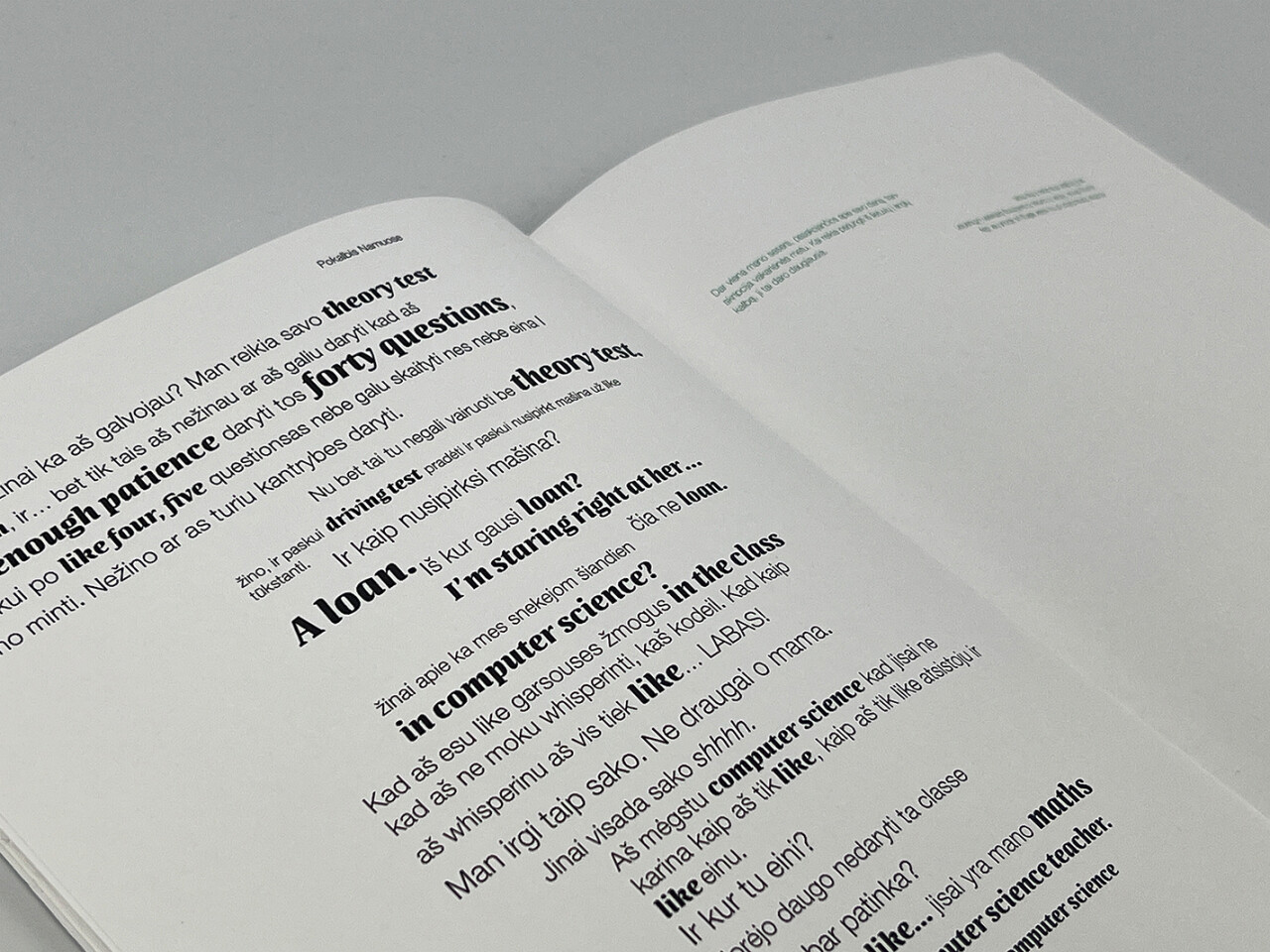
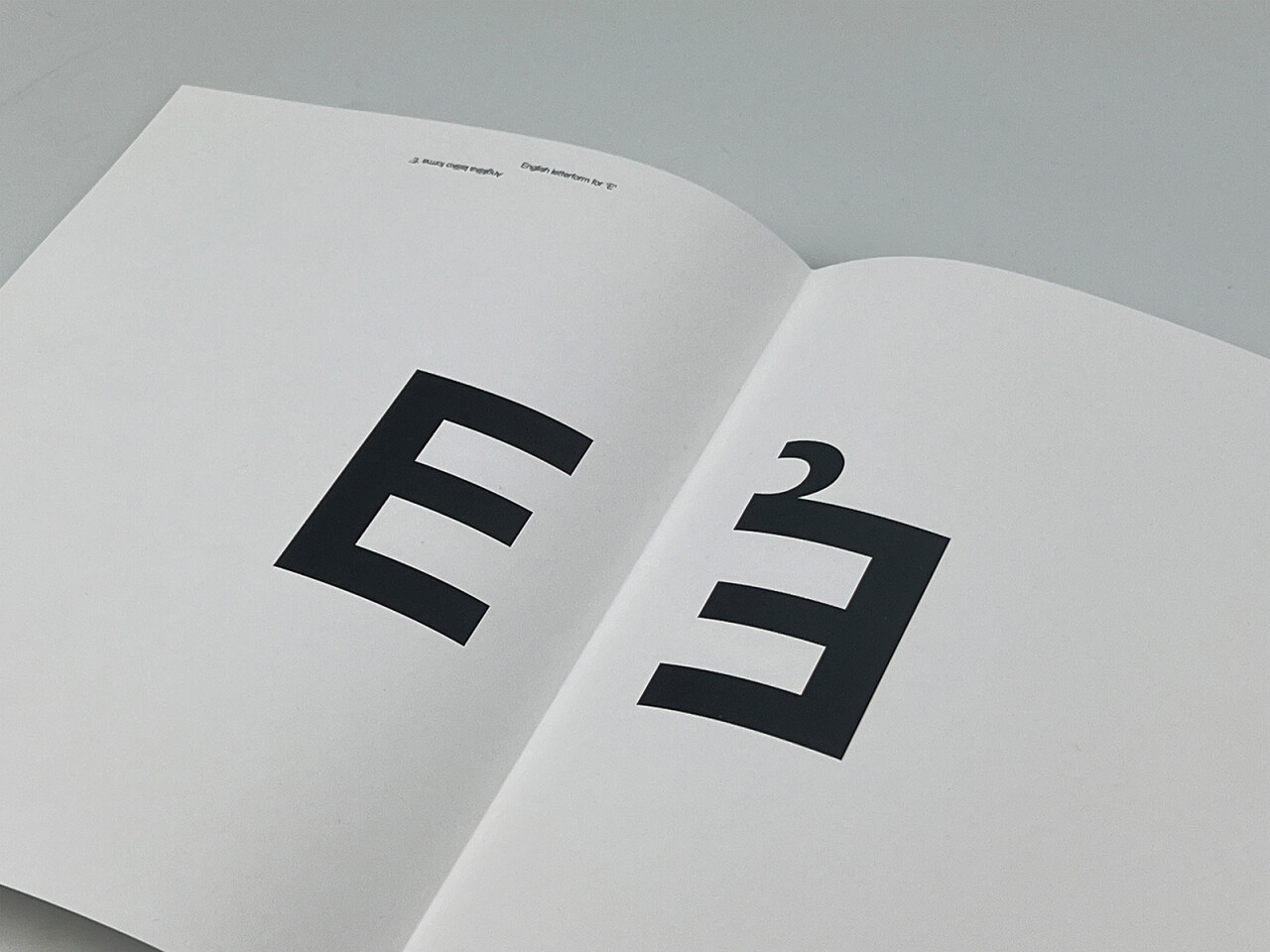
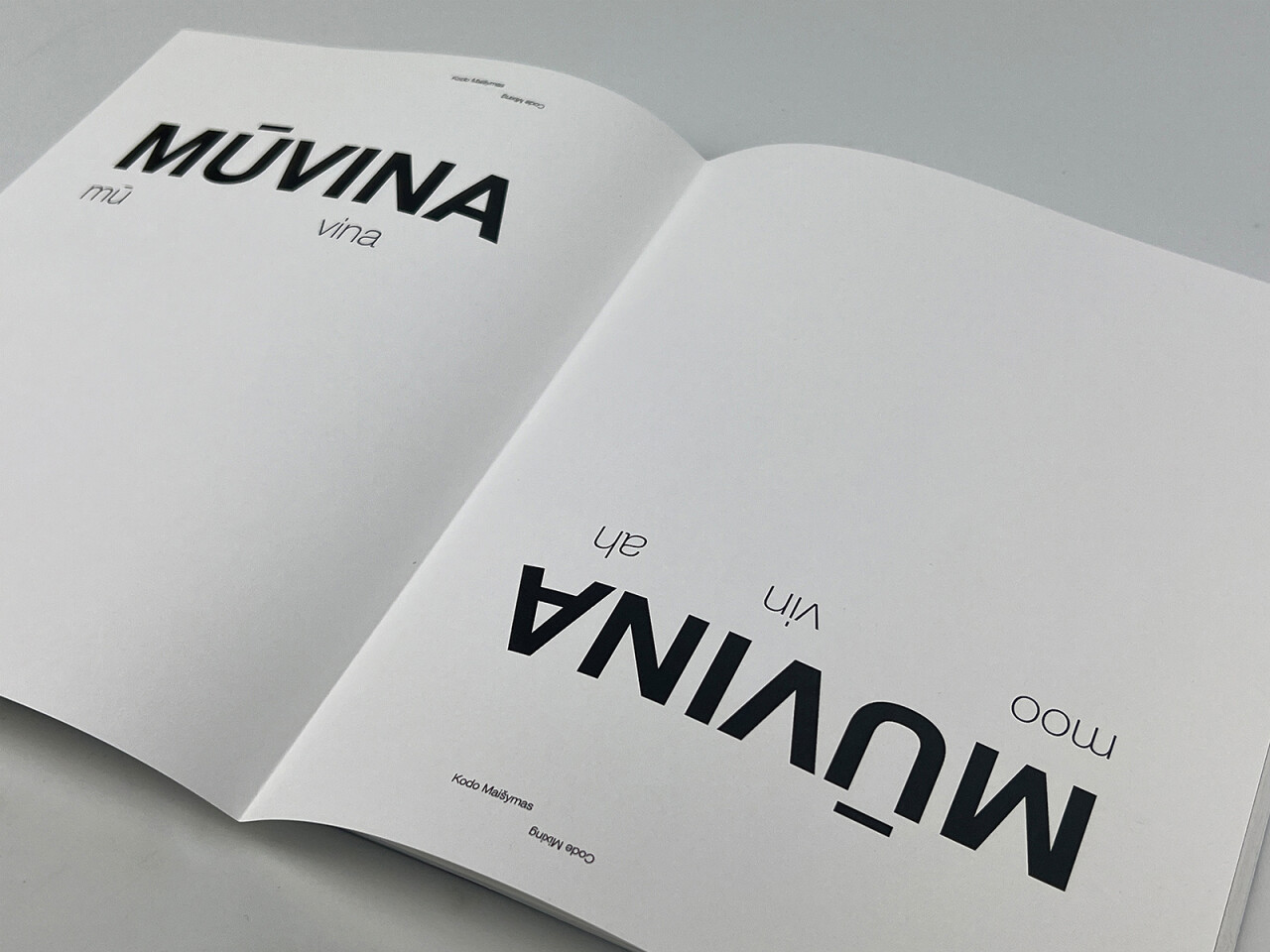
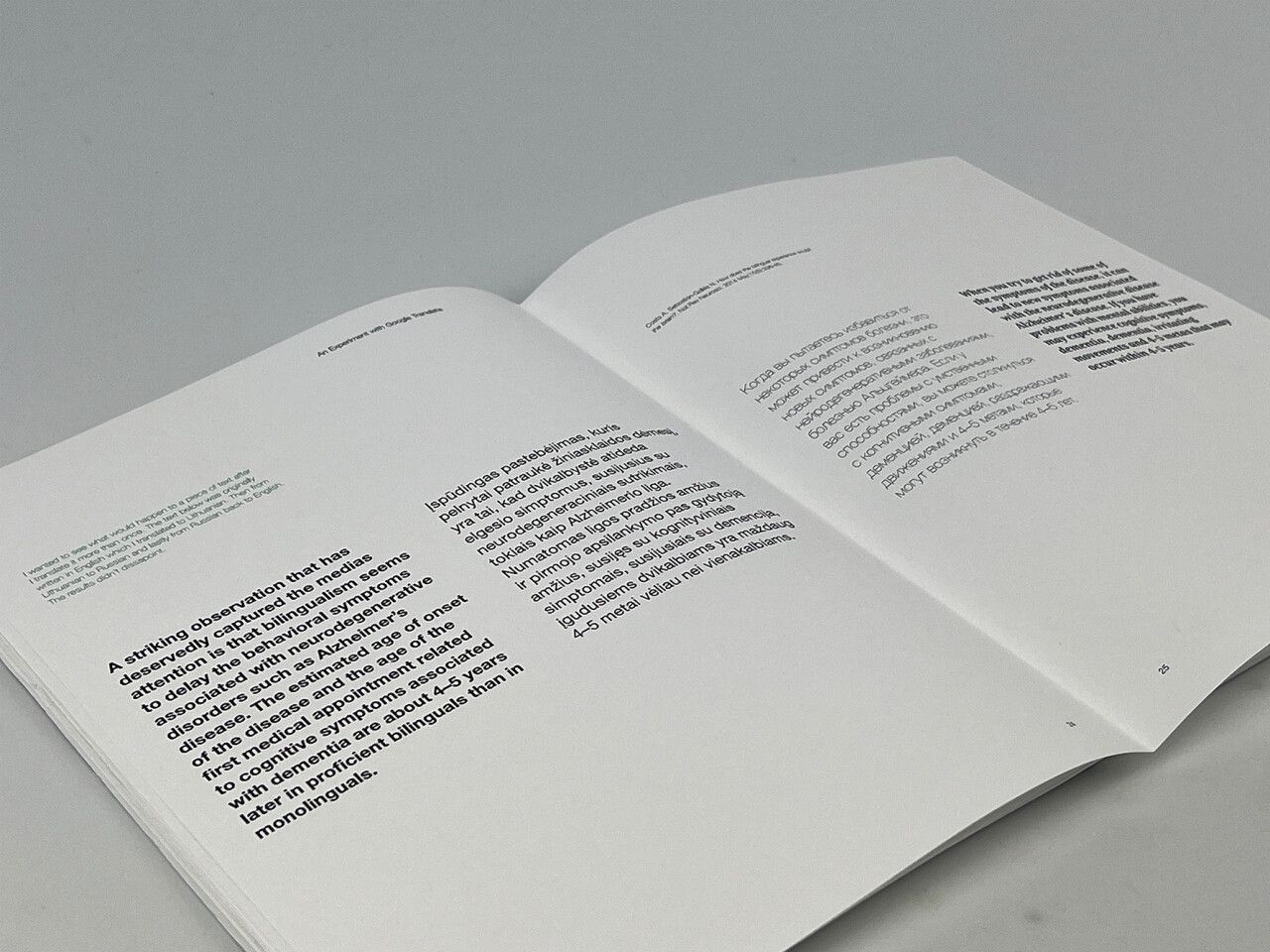
Deimante Vaicekauskaite is a designer based in Meath. Throughout her studies in TU Dublin, she's honed her craft, showcasing a diverse skill set. Deimante has strong interest in typographic print/ editorial design and illustration. She enjoys working across all aspects of graphic design. She is always learning and expanding her skills and diving headfirst into the latest design trends to push her creative boundaries.




This project is in response to the ISTD “Linguistic Hybridity” brief. The brief asks us to choose an example of linguistic blending and analyse the way in which different languages are coded and deciphered through typography. For this project I used my own personal experience of growing up bilingual as a Lithuanian. It includes typographic examples of code switching and code mixing as well as scientific research into the effects of bilingualism on the brain. Some examples include conversations between myself and my family and a lexicon of hybridised Lithuanian and English words. The aim of this project is to connect with other people who were raised bilingual, whether that’s other Lithuanians who speak English to relate to or others who speak more than one language. It also gives monolinguals an insight into the ways others may communicate with their friends and family in a way they haven’t experienced before.
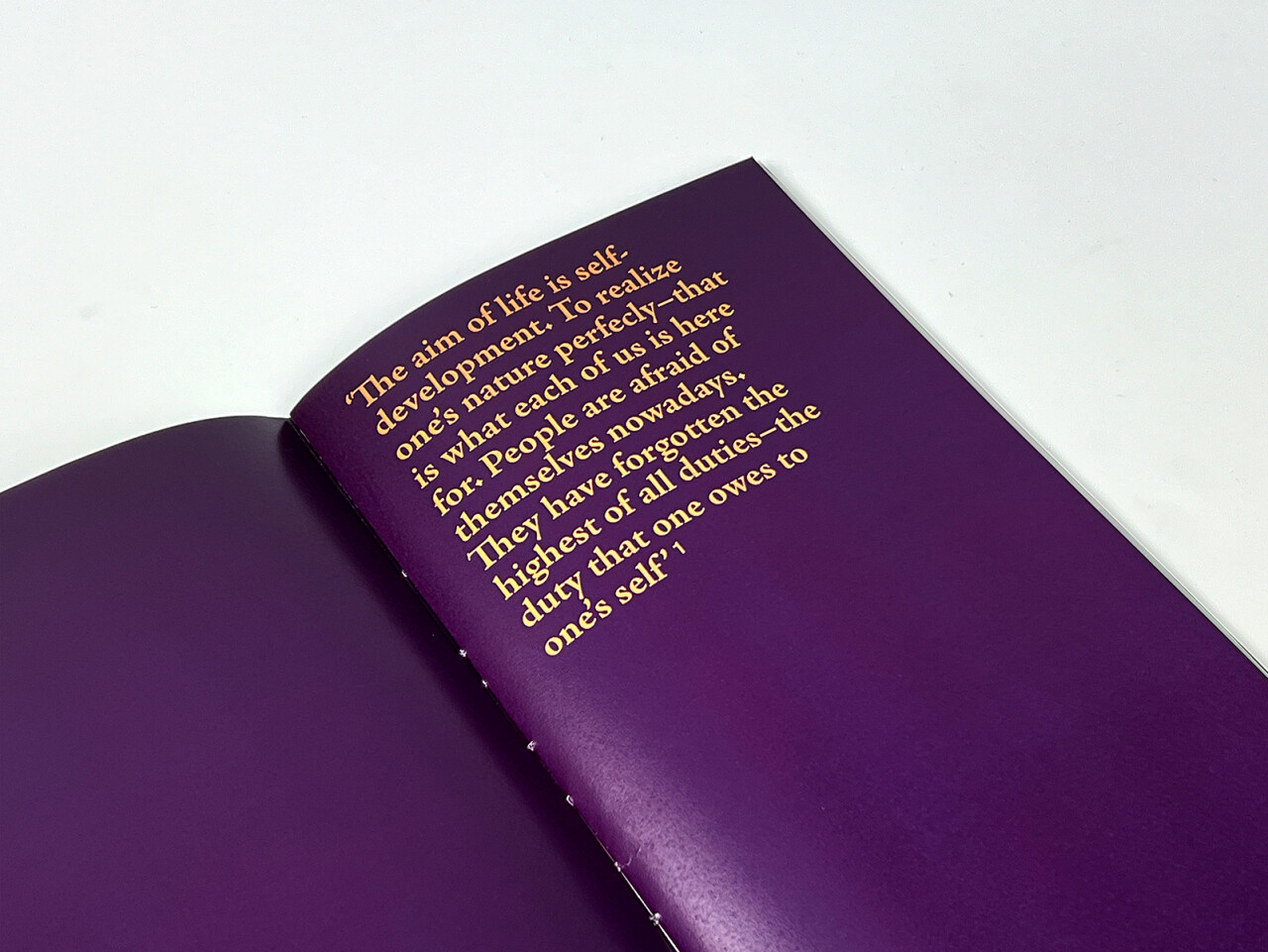
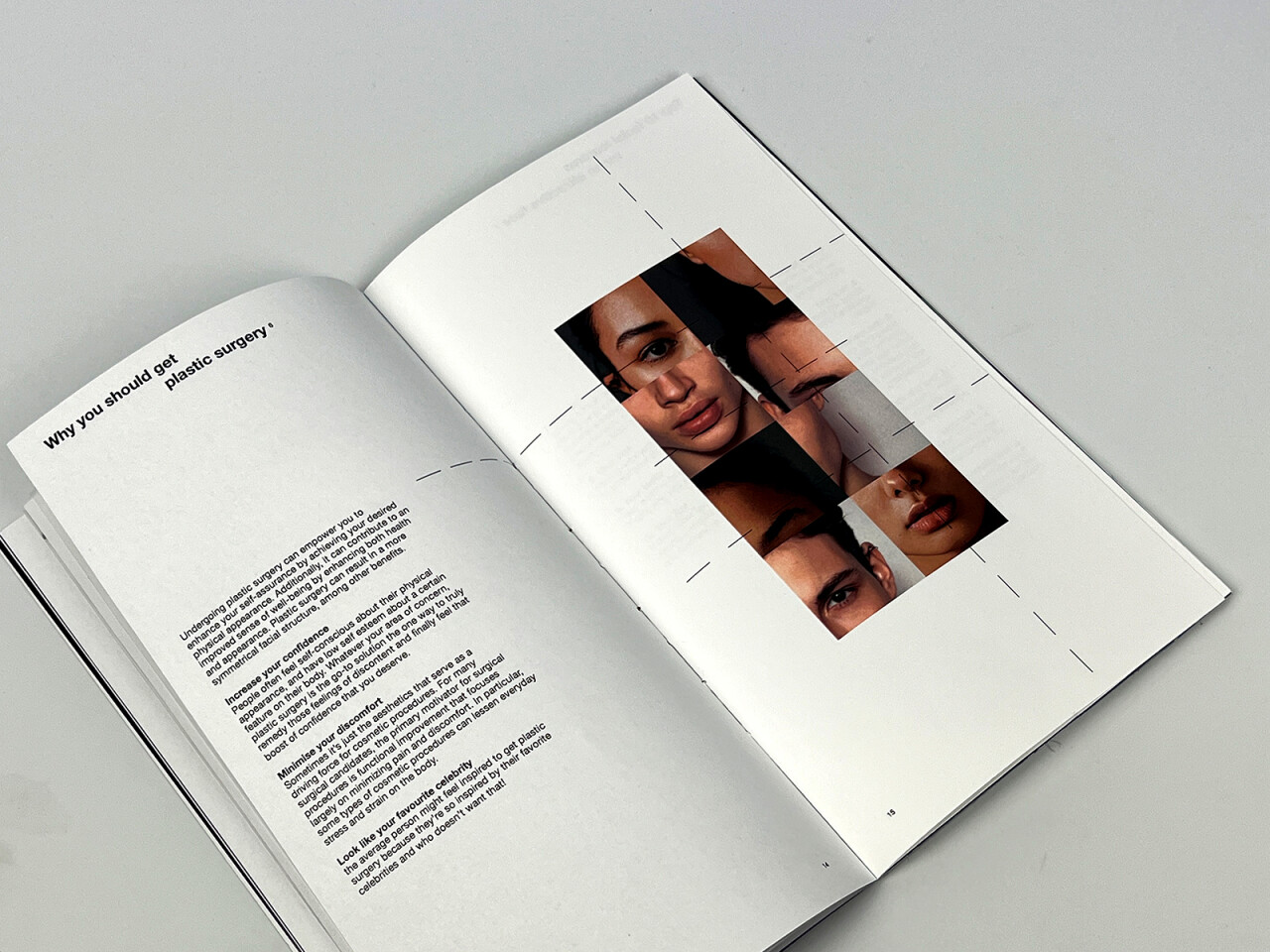
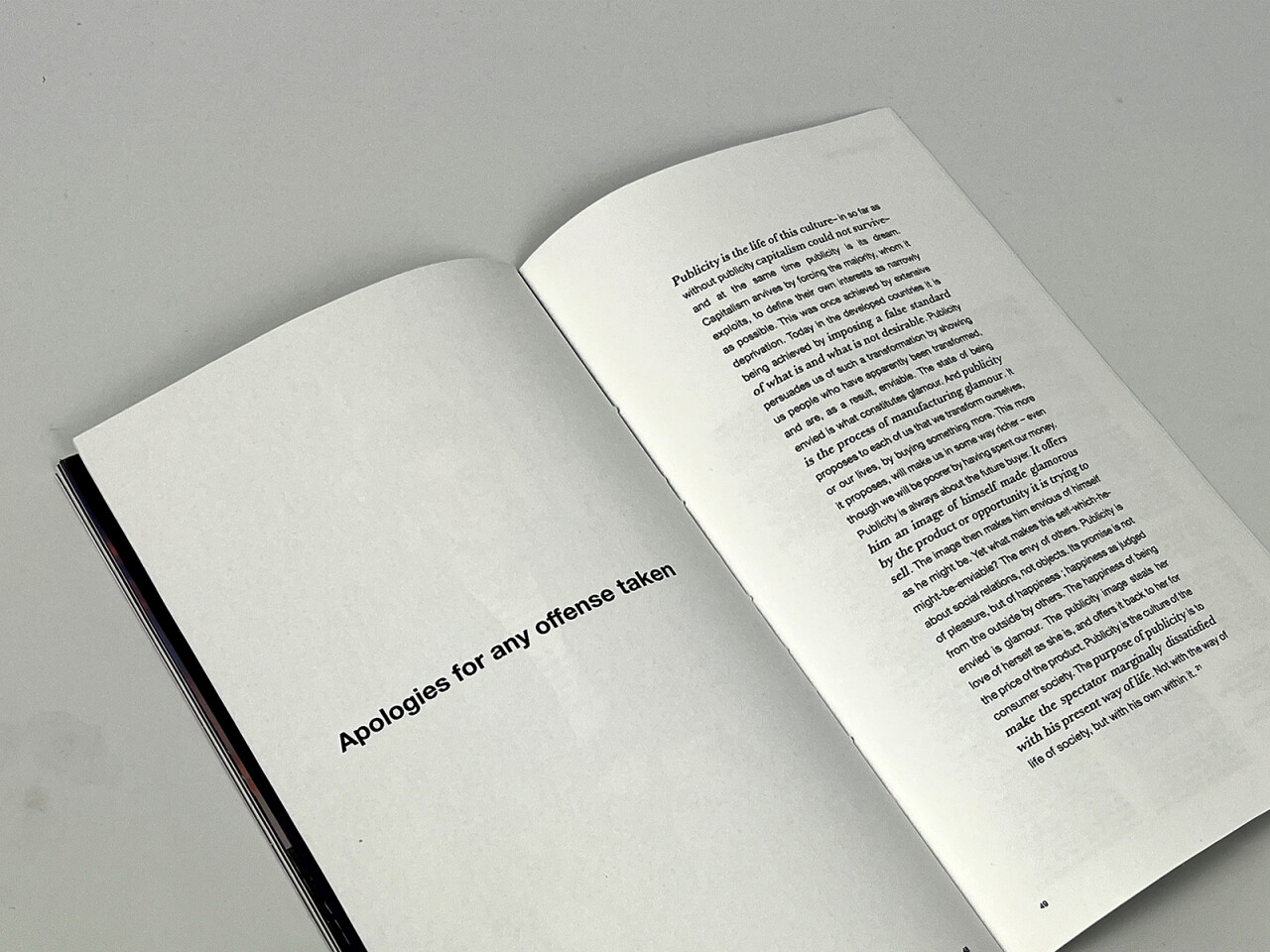
This project is in response to the “Shaping the World” brief which has a list of 100 books that changed the world. The brief asks us to look at their significance in shaping the course of history, how they explore the human condition, challenge perceptions and contest social norms. For this project I have chosen the novel “The Picture of Dorian Gray” and will be using the characters as vehicles to represent how we as a society have become obsessed with ourselves. One of the biggest effects of this is consumerism. They always push their own philosophies for their own gain, using influencers and celebrities to manipulate them, to give into their inner desires. The aim is to spread awareness about the way corporations are manipulating the masses into thinking that they need to have specific things to have a sense of value or status in their communities.